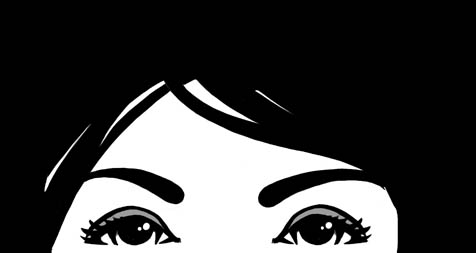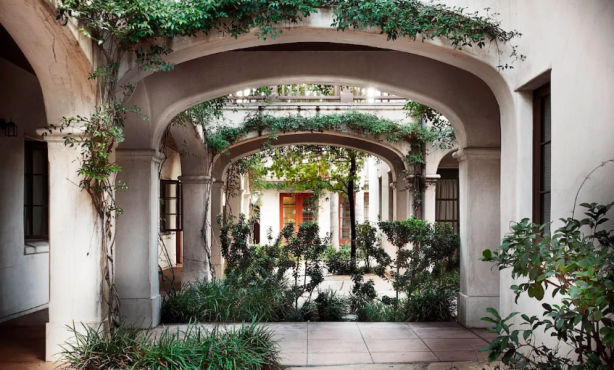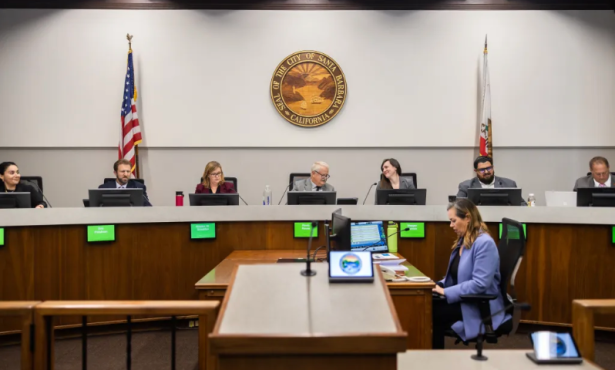We’re Here. We’re Just Like You. Get Used to It.

This past Saturday was my one-year anniversary of coming out to my parents. Yep, it’s been one full year since I stayed up all night crying, couldn’t eat a morsel of food, and thought that this surely was the end of the world as I knew it. It has been the year of more visits to my therapist and more talks about my feelings with my friends. I have learned anew that sarcasm and self-deprecating humor are my first responses to painful situations. I have discovered (again and again) just how wonderful my girlfriend, Jackie, really is, and my friends have taught me they’re like family. I’m still learning that’s it’s okay to be angry and that I shouldn’t feel guilty. I’m figuring out what it feels like to be fully, 100 percent known.
It’s ironic, or perhaps even fated, that last Tuesday I spoke at Santa Barbara City College as part of the President’s Office’s Diversity Dialogue. The series aims to bring together community members to talk about current issues involving social justice and activism. This year’s previous topics included immigration, women in education, and female athletes. My talk closed out this spring’s series and was officially titled LGBTQ Alliance Building.
In preparing for the discussion, I looked over my old articles and spoke with my editor and a few colleagues about what I should cover. At home, Jackie and I fretted about what I would wear, and privately, I worried that my voice would sound monotone or that I wouldn’t be engaging. That day, work was hectic, and so I wondered if I would even get there, let alone take a shower and arrive on time.
But everything seemed to go off without a hitch. People were listening, the audience asked questions, some folks even laughed a few times. When my time at the mike was up, an SBCC student reporter asked a few questions for a story she was writing for her paper, The Channels, and a fellow Indy writer even had some clarifications for his article for independent.com. Quite frankly, as a writer, one of the oddest experiences has got to be being interviewed; the whole time I was thinking about how I hoped to God they would edit out my numerous “ums” and “uhs” and inarticulate phrases.
Something vastly more important than my being witty or interesting happened that afternoon, though. Community was built. Gay students saw they weren’t alone. A young lady named Narda Rosales started the Q&A (Queer and Ally) club at SBCC. (Email them at sbcc.qaclub@gmail.com.) Her club’s meetings hope to foster activism and event involvement both in Santa Barbara and on a larger scale. A school counselor also told me she’s trying to start up a class on gay and lesbian studies.
It indicated that I’ve been embraced by the community, and not because I’m special or unique. I’m embraced, and my column is embraced because it fills a very important need in Santa Barbara. Anyone who wanted to ignore the gay people in our community can read in this column that there’s nothing different about us. Gay people are your neighbor, the man in line at Trader Joe’s, the lady walking her dog at the beach. Until this column, not everyone knew that we are real and exist in the everyday. Not every gay person knew there were other people in the world dealing with the same issues; not all straight people knew there were gays doing life in much the same way as them.
I don’t pretend to think that I’m changing the world with my measly 750 words every other week. I do, however, think that this column makes baby steps at humanizing what for many people is foreign; it normalizes the experiences of a gay woman, who, for the record, leads a very normal, if not boring, life. While this process of “normalization” may seem unnecessary to some, the truth is that it’s very necessary if we are ever to hope to have marriage equality, hospital visitation rights, or freedom from fear of hate crimes.
It’s difficult to discriminate against or hate someone you’ve learned is just like you, someone who goes through life in a similar fashion as you. I like to think it’s the more palatable, 21st-century version of “We’re here. We’re queer. Get used to it.”



